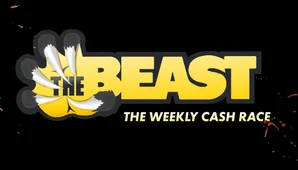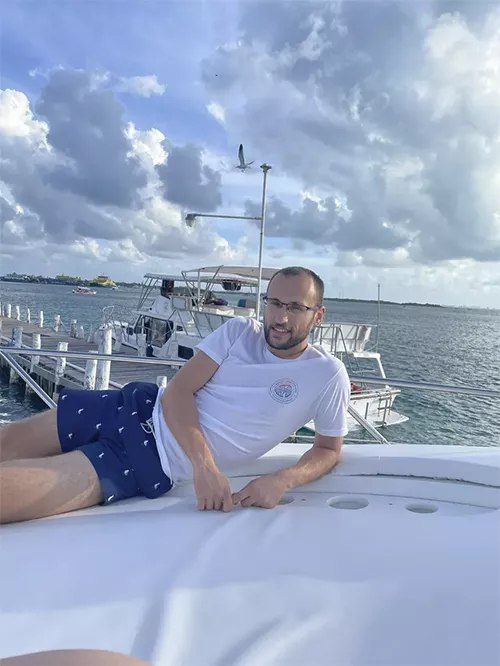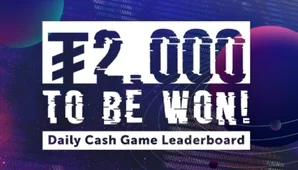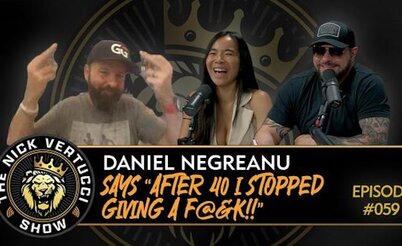– We’ll probably discuss your strengths later, so let’s start with your weaknesses – do you even have any?
– Actually, it's an interesting topic. I rarely see such thoughts on the GipsyTeam Forum. For me, the weak point is memory. I often don't remember hands played yesterday, the day before, or even in the current session. This prevents me from recording showdowns and tracking subtle moments, for example, in the deviations of specific opponents or trends.
And here, of course, I am wildly jealous, for example, of Avr0ra. When he sees a familiar nickname on the stream and starts telling me about a hand with this player, which they played 6-7 years ago, completely reproducing the action, flop, turn – it's impressive. I think guys with a good memory by nature have a significant advantage in this regard.

– Since you immediately mentioned Avr0ra, what do you think a player who wants to reach high stakes should develop first?
– First of all, you need to find motivation in yourself and understand why you need it. It can be either a strong love for the game and the competitive process, or an incredibly powerful monetary motivation. However, it is difficult for me to imagine such a strong motivation associated with money. Raising to high stakes in modern realities is a very energy-consuming and long process, and it is not always clear whether it is worth such efforts.
– So, poker has two years left?
– It is unlikely that the game will die in two years, but the situation is getting worse every year, and I think this trend will continue. The career of a poker player is most similar to the career of a professional athlete. With age, it is increasingly difficult to keep up with the "young and hungry", and even more so to do such a routine as theory. I think a 50-year-old poker player who has been playing for a long time and exclusively for money is not the happiest person. The sad faces of offline regs sitting in all the casinos of the world on 1/2 confirm this.
That's why I think the ideal poker career is to start playing poker at 20 and finish it before 40. During this period, you need to not only live well, but also save up capital for retirement. Due to regulatory bans, rake increases, the spread of bots, and the loss of interest in poker among amateurs, traffic is decreasing every year – and although some of it is migrating to platforms like GG, there is nothing good about that either.
Right now I estimate my annual expectation to be around $150,000, but I think that in 5 years with comparable efforts it will drop to $100,000.
– A measly $100,000... How can you live on that kind of money?! It's probably time to remember the beginning of your career.
– It's quite a funny story. Once, having come to the village for a couple of days, I was standing in a group of childhood friends. One of them said that his roommate in the dorm earned money playing poker. I remember his words almost word for word: "He plays several hours a day, earns $500, and then doesn't go near the computer for several days – spends this money, relaxes." Today it sounds quite unprofessional, but back then many people lived exactly like that.
A few months later, already sitting in Moscow and tired of playing CS, I remembered this conversation. I googled it, got my first welcome bonus: that's how my path in poker began – it was 2009.
It's interesting how a phrase you hear by chance can completely change your life. Initially, I was attracted only by the money, and not by the beauty of the game. I didn't see any streams or broadcasts, I didn't know the rules of poker either – I was attracted only by the opportunity to "earn money by playing".
– Did you have friends or coaches who helped you at the initial stage, or did you learn everything on your own?
– I stayed outside the poker community for a long time because I was hanging out with my school and college friends – that was enough for me. I didn’t think that poker socialization would help in the game. Besides, my attitude towards poker was like “I’m fooling around while I’m at college, spending money on restaurants and trips, and then, naturally, I’ll have to work for real.”
I read articles on poker sites, and watched videos that were released there. I developed very slowly, stake after stake. I sat at NL10 for a long time, about a year or a year and a half. For most of the first stage of my career, I played NL50-100 for rakeback.
Then I switched to Chinese apps. At that time, the GipsyTeam forum was already actively discussing that you can earn good money in them. My friend Vova "nenazavode" decided to try first, played successfully for a month and pulled me up. The game was with straddles, and I played almost the entire distance at the 5-10-20 and 10-20-40 stakes.
At that time I had my own bankroll, about 15-17 thousand dollars. I remember it exactly, because I first got to a casino in Sochi and was figuring out what stakes I could play at. In the end I sat down at 1-3.

I always played with my own money, there was only one very short period of backing, so I couldn’t go through several stakes at once and win a huge bankroll, but everything worked out well.
Chinese apps helped me restart my career. On the one hand, I was able to win money and ended up with a bankroll of 50-60 thousand dollars, which was a lot for me at the time. On the other hand, these games were very different from what I had played before, and I had to reconsider many game situations from a strategic and theoretical point of view. Playing in apps literally pulled me out of poker hibernation, when I was playing for rakeback, not really understanding what and why I was doing. I had zero theoretical understanding of the game.
When the fair and accessible game in the apps ended, I sat down at PokerStars again and started with NL50 to remember the mechanics of the game. Gradually passed the stakes of NL100, NL200, NL500 – showing good win rates and results everywhere – and eventually turned on NL1k. This path took about 9 months. Although I am sure that many with such a bankroll would immediately sit down on NL1k.


– It seems that you are not passionate about poker and treat it as a job. Aren't you afraid that over time the game will start to cause disgust?
– No, I'm not afraid, because in 10+ years of my professional career, this hasn't happened, even in the most difficult periods. I think that my attitude to the game will remain the same: I will treat poker with respect and gratitude for what it gives me. I will try to maintain a certain level and find a balance between the efforts I put into poker to achieve a result and what is left for life outside the game.
– What do you see as your strengths as a player?
– First of all, it is psychological stability, which has allowed me to cope with various pressures for quite a long time – both poker (in the form of dispersion, under-delivery and other factors) and non-poker (what has been happening in life and in the world in general in recent years). Therefore, I can calmly sit down at the table and show a positive result. Yes, my strategy is not the most complex and perfect, but I rarely drift and am able to just sit, play and consistently demonstrate what I can do.

I also consider my strong point to be a professional approach to poker in the broadest sense of the word. This includes the right balance between the game, regime, theory, rest, and quality recovery through sports, travel, and new experiences. It seems to me that this aspect is still underestimated by many players, because it is this that has allowed me to play long distances over many years – both in hours and in the number of hands, without burning out and without sliding into "poker hell".
I've been playing about half a million hands a year at NL400+ stakes for the last few years. I'll probably play less this year though, as I've lost 4-5 months of play due to travel.
– What was the most difficult moment in your career?
– I didn’t have any super difficult moments, and I took all the falls quite calmly. The lowest point was in 2016 or 2017.
I was sitting by the sea, and I had $800 left in my bankroll. I needed to pay for housing – a small house that I rented. I withdrew $200 of this money for living expenses, and I literally had a few rubles left in my pocket. At that time, I was playing NL50, that is, it was only 10-11 buy-ins – I really didn’t want to go down to NL25...
But I wasn't too worried back then, because I was alone, without any obligations. I had a free apartment in the Moscow region, where I could, in a pinch, go back, lock myself in and just grind. There were always ways to earn money. So, although the situation sounded scary in numbers, I wasn't particularly afraid.
Then I was lucky enough to turn around and go to Chinese rooms, from which I returned with new knowledge and destroyed Stars!
– How do you rate the current level of NL400-NL2k players?
– The level is very tight now. I think many regulars of these stakes could show good results at high stakes, but a number of reasons – unwillingness to pump up the display, various out-of-game factors or simple laziness – prevent them from doing so. Perhaps, like me, they have weak points that prevent them from "assembling the puzzle" in the game – finding that very brick that would allow them to tear everyone and everything apart. At the same time, these are still very strong and savvy guys technically.
In my opinion, the last stakes where you can still meet relatively weak players is NL400 on WPN, especially if we talk about full ring. There are often guys playing there who mix stakes from NL100 to NL400, or those who are just moving from NL200 to NL400. Such players can make quite serious mistakes that are immediately visible.
– Can you highlight the most common mistakes made by mid-stakes players?
– I won’t go into details like continuation bets or defense frequencies. I’ll put it this way: people don’t understand what they’re doing and why. They have some kind of strategy in their heads, assembled like Frankenstein from disparate courses, accidentally heard concepts, and advice from good players. They use this Frankenstein during the game, without understanding the essence of their actions at all.
If a person wants to move up and start playing better, he must thoroughly understand the reasons for his decisions. Poker is a mathematical game, and every action has its own reason, which these players often do not understand. Many play on autopilot, and when I ask in training: "Why did you bet in this situation?" I am told: "Well, I have top pair." But I do not care what hand the person has, I need a reason why he made a bet. And people are stumped. They have a pattern: "You need to bet here." But why?
The main advice here is to break the patterns in your head and find the root causes of your actions, consciously approaching each hand.
– What prompted you to take up teaching in the first place?
– I started training quite a long time ago, somewhere around 2020. Initially, I did it solely for the money. I had a lot of unproductive time in the evenings, which I spent on timekillers like YouTube. Then I decided that I could use this time to better benefit myself. But quite quickly this activity transformed into something more.
On the one hand, I realized that it was beneficial for my own game. On the other hand, I started to enjoy teaching others, it’s really nice when people thank you for helping them during a difficult period in their lives. So it’s a complex story, which, of course, has a financial component, but it’s also connected to recognition and the opportunity to help others.
– What qualities do you think a successful coach should have?
– The main quality of a successful coach is the ability to play poker. I disagree with the opinion that this is not necessary. As evidence, examples from other sports are often cited, where people who have not reached the top level in their careers become coaches of stars or major league teams. For example, Jose Mourinho. But for me, these are absolutely incomparable things. A good coach in poker is, first of all, a good player, and the only validation of his skills is profit.

As for the other qualities, of course, it is important to be able to explain and structure the material well. But, in my opinion, this is less important, since we do not work with children, to whom we need to find an approach and explain why they need it at all. Motivated people come to us who want to start earning more, and the main thing here is to understand the problem and convey knowledge.
Another key point is that the coach must be interested in the process. I would put this on the same level as the ability to play. If the coach is not passionate about what he does, treats training formally and does not feel responsible for the result, all the work becomes useless. The coach must invest in the process completely.

– What were the most difficult problems of students that you helped solve?
– It’s hard to say... Probably, everyone considers their problem to be the most difficult, and their situation to be the hardest. People come to me with different requests. Someone loses confidence in the game during a long streak and just wants to hear from an experienced player: “You’re good, keep doing what you’re doing. These moments can be corrected, but overall you’re playing OK, you just need to endure.” This is very important, I know from my own experience.
Some people come with a specific question: "I don't understand where the money is going in such and such a spot." Others ask to look through the database and give directions for independent work. There are also more general questions: how to build a regime, where to play... My advantage is that during my career I have probably tried all possible options: grinding for rakeback, playing with a hard selection, trying night, day, morning play. I had super-long sessions, and short ones for hours with mandatory breaks... I think that in terms of poker, I can also give a lot. That's why I always talk to the players first, try to understand their problems.
– What qualities should a student develop in order to achieve results?
– First, he must have time and motivation to do what we discussed during training. I always give direction for further work, and if after training the student simply puts the video aside and never returns to it, then the training was useless.
It is also important not to be afraid of seeming pushy or intrusive. When I was training on an hourly basis, hundreds of students passed through me, and I told everyone: "You can write me questions on Telegram." But I remember only one person who spammed me with questions, the rest just disappeared.
It's interesting to work with students who are truly passionate about poker, highly motivated and full of questions. At such moments you feel that your teaching is really necessary.
– Do you think it’s possible to teach anyone to play in the black?
– I think so, the only question is at what stakes. NL50 is within the power of almost everyone, and NL25, so to speak, could be beaten even by a bear riding a bicycle in a circus. In general, at the moment, anyone can play with a normal plus at stakes of NL50-100.
At higher stakes, more factors must come together. Either a person must have good psychological stability, or he must have above-average intelligence or a huge amount of energy that he is willing to spend on learning. If all these qualities are combined in one person, then this is a potential high-stakes player.
– Have there been moments in your life when you doubted your choice to become a professional poker player?
– A few months ago I was in Moscow, where we were getting documents to move to Slovenia. I met with my college friends, with whom I still communicate, and I realized that many of them have already surpassed me in earnings. And they achieved this without connections or connections – simply thanks to hard work and a good education. This is in relation to the question of what to do if not poker, because such thoughts are often heard on forums.
Despite this, even knowing that I could earn a good living in a managerial position, and that the future there would be much less uncertain than it is now in poker, I still would not give up poker as a professional activity. For me, poker is, first and foremost, freedom, and this is really important. Let many laugh at the phrase “poker is freedom”, I still think that it is. It’s just that someone confuses freedom with the ability to do absolutely nothing. That’s all.














